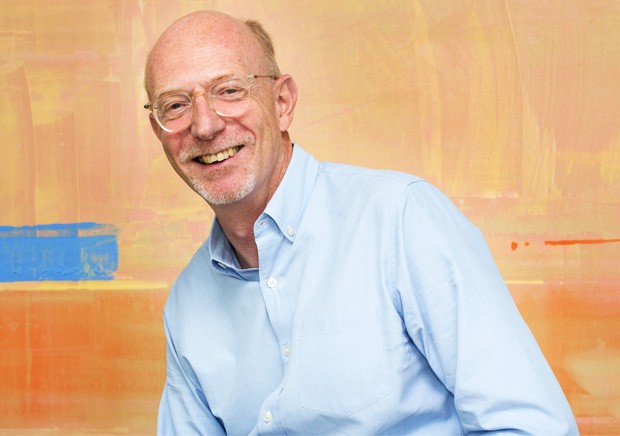A Conversation with the President of ICCEES

Professor Mink, the 10th ICCEES World Congress will be held in Montreal in August 2020. How would you describe the significance of that event?
It is very symbolic– in fact, a kind of homecoming. It was in Canada, in Banff to be precise, that ICCEES was founded in 1974. Since then the organization expanded far beyond the borders of its founding associations, and today its membership comprises nineteen national associations. An especially significant recent development has been the accession of member associations from Asia: China, Mongolia, and Kazakhstan.
In 2015 our Japanese colleagues, members since the foundation of ICCEES, organized the 9th World Congress, the first to be held in Asia. The city of Makuhari welcomed more than 1,300 participants from forty-nine countries. Subsequently, the annual East Asian conferences became regional conferences of ICCEES along the lines of those that occasionally took place in Europe. In 2018, ICCEES approved the membership of the newly-formed French association, l'Association Française des Etudes sur la Russie, l’Asie et l’Europe centrale. All in all, our scope is much more global today.
What was the original goal of the international consortium?
The founders wanted to promote contacts and knowledge-sharing among researchers and practitioners during the Cold War. With the dissolution of the Soviet Bloc in 1989–1991, in various disciplines the specialized study of this geopolitical region began to shift focus to the transitional, post-Soviet reality. When the Berlin Wall came down, ICCEES carried on the symbolism by holding its next Congress in Warsaw (1995).
What challenges does ICCEES face today?
After the initial euphoria of seeing democratizing transformations, our academic community encountered unexpected geopolitical processes, including the breakdown of democracy in some countries, and real threats to the free flow of information on the Internet. These of course are also challenges for academic teaching and research. More than ever, universities are renewing their commitment to build expertise through critical analysis and effective pedagogies.
The international meetings of ICCEES and its national associations offer unique opportunities for academic encounter, exchange, and debates. Despite technological advances, the World Congress remains a tremendous occasion for international networking and bonding, both of which are vitally important to interdisciplinary collaboration in the humanities and social sciences.Thank you for your insights– anything else by way of conclusion?
It is thanks to the dedicated work of our colleagues in the Canadian Association of Slavists (CAS) that ICCEES will convene its 10th World Congress and mark its forty-sixth anniversary in Canada, where it all began. We are especially delighted to meet in the beautiful City of Montréal.
On behalf of ICCEES, I sincerely thank CAS for organizing the Congress, Tourisme Montréal for its hospitality and support, and Concordia University for its fantastic collaboration and generosity. To all of you and to all Congress participants, my warmest greetings and wishes for a successful and unforgettable meeting in Montréal!
A Message of Welcome from the President of CAS
As President of the Canadian Association of Slavists (CAS), I am often called upon to ruminate about the history and future of our organization as well as the role that our members play in the global community producing scholarship in Russian, East-Central European, Balkan and Central Asian studies. That sense of history is one of the reasons I am particularly pleased to see ICCEES return to North America for its 10th Congress in August 2020.
As one of the founding members of ICCEES, and host of its 1974 inaugural event, CAS is firmly committed to the kinds of international collaborations and sharing of knowledge that ICCEES stands for. To that end, the congress theme, Bridging National and Global Perspectives, is meant to reach out to scholars across the world and encourage them to build connections with one another. We are all richer as scholars and human beings when that happens, and I look forward to meeting as many ICCEES delegates as possible when we gather in beautiful Montréal.
Dr. Alison
Rowley
President, Canadian Association of Slavists
Professor, Department of History,
Concordia University
Co-Chair of the Organizing Committee for the 10th ICCEES World Congress
A Message of Welcome from Concordia's President and Vice Chancellor
It’s an honor for me to welcome the ICCEES World Congress 2020 to Concordia University. Concordia was founded in 1974, the year when ICCEES held its inaugural event. Like ICCEES we pride ourselves on having an global vision that values transnational partnership and collaboration. Recently ranked as one of the world’s 200 most international universities Concordia currently welcomes students from more than 150 different countries. This diversity is integral to our character as an innovative, next generation university and helps to explain why, for the last three years, QS has ranked Concordia as Canada’s and North America’s top university less than fifty years old.
We are also fortunate to be located in the Montréal. A United Nations City of Design and a center for high tech industries in many fields, Montréal is renowned for its cosmopolitanism and joie de vivre, for its arts, parks, cultural festivals, and gastronomy. It is also always ranked as one of the top student cities in the world and, together with Boston, Montréal is the metropolitan hub with the greatest concentration of higher education institutions in North America.
I hope that you will have a wonderful, intellectually stimulating conference. Please take full advantage of your stay to explore Concordia University and Montréal.
Dr. Graham Carr
President and Vice Chancellor
